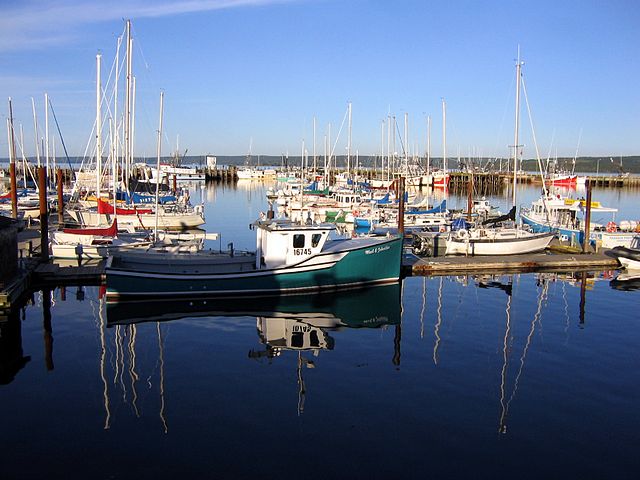
No compensation for East Coast shrimp fishermen hit by quota changes
by Aly Thomson, The Canadian Press

Ottawa says fishermen in Nova Scotia and New Brunswick will not receive any money despite changes to rules governing northern shrimp stocks

Canada’s commercial fishing industry employs approximately 76,000 workers coast to coast. PHOTO: Aconcagua, via Wikimedia Commons
HALIFAX—The federal fisheries minister has flatly rejected the notion of compensating fishermen in Nova Scotia and New Brunswick who are facing reductions in their northern shrimp quotas.
During a news conference in Halifax July 21, Dominic LeBlanc said the fishery is still viable for those fishermen, so compensation is not needed.
“We wouldn’t compensate people who are prosecuting a viable fishery,” said LeBlanc, standing next to the Halifax Harbour at the Bedford Institute of Oceanography.
“But we’re sending a signal to both the inshore fleet in Newfoundland and Labrador and to the offshore sector in other provinces… that there are tough years ahead, it would appear, in terms of the scientific advice.”
LeBlanc recently scrapped the last-in, first-out (LIFO) policy and replaced it with a system of proportional sharing. He said his decision on LIFO was based on science and is in the best interest of the shrimp stocks, which are in decline.
“Obviously the decision with respect to northern shrimp was based on scientific advice that told us, particularly in certain areas where the northern shrimp fishery was prosecuted, there had been a very significant reduction in the biomass,” he said.
“So people should make business decisions and economic decisions based on what is publicly available information that this stock, certainly for the next foreseeable period, may not be as plentiful has it has been perhaps for the last 10 years.”
LeBlanc said proportional sharing is the most fair and equitable way to manage the fishery.
“It shouldn’t have surprised anyone after the panel report, our government thought that a proportionate sharing of what is a reduced quota was the responsible decision to make both economically but also in terms of conservation,” he said, referring to an independent panel report delivered to the minister late last month.
“Had I not had that independent panel report, I think I would have arrived at that same conclusion myself.”
Nova Scotia Fisheries Minister Keith Colwell has said scrapping LIFO could spell disaster for Nova Scotia fishermen, who have invested heavily in the northern shrimp based on the protections of the policy.
The northern shrimp fishery was largely developed by a pioneering group of companies in Nova Scotia and New Brunswick that operated larger offshore trawlers specifically designed to scoop up shellfish.
After the cod collapse in the early 1990s, which wiped out about 40,000 jobs in Atlantic Canada, fishermen on the north coast of Newfoundland persuaded Ottawa to let them use their smaller boats to start catching shrimp.
But the inclusion of the so-called inshore fleet in 1997 came on the condition that the fishermen agree to LIFO, which stipulates that the last entrants to the fishery are the first to leave when the quota is cut.
Newfoundland and Labrador Fisheries Minister Steve Crocker has said with stocks declining, there will be “no winners” in either province—and a sharing approach will be more fair.